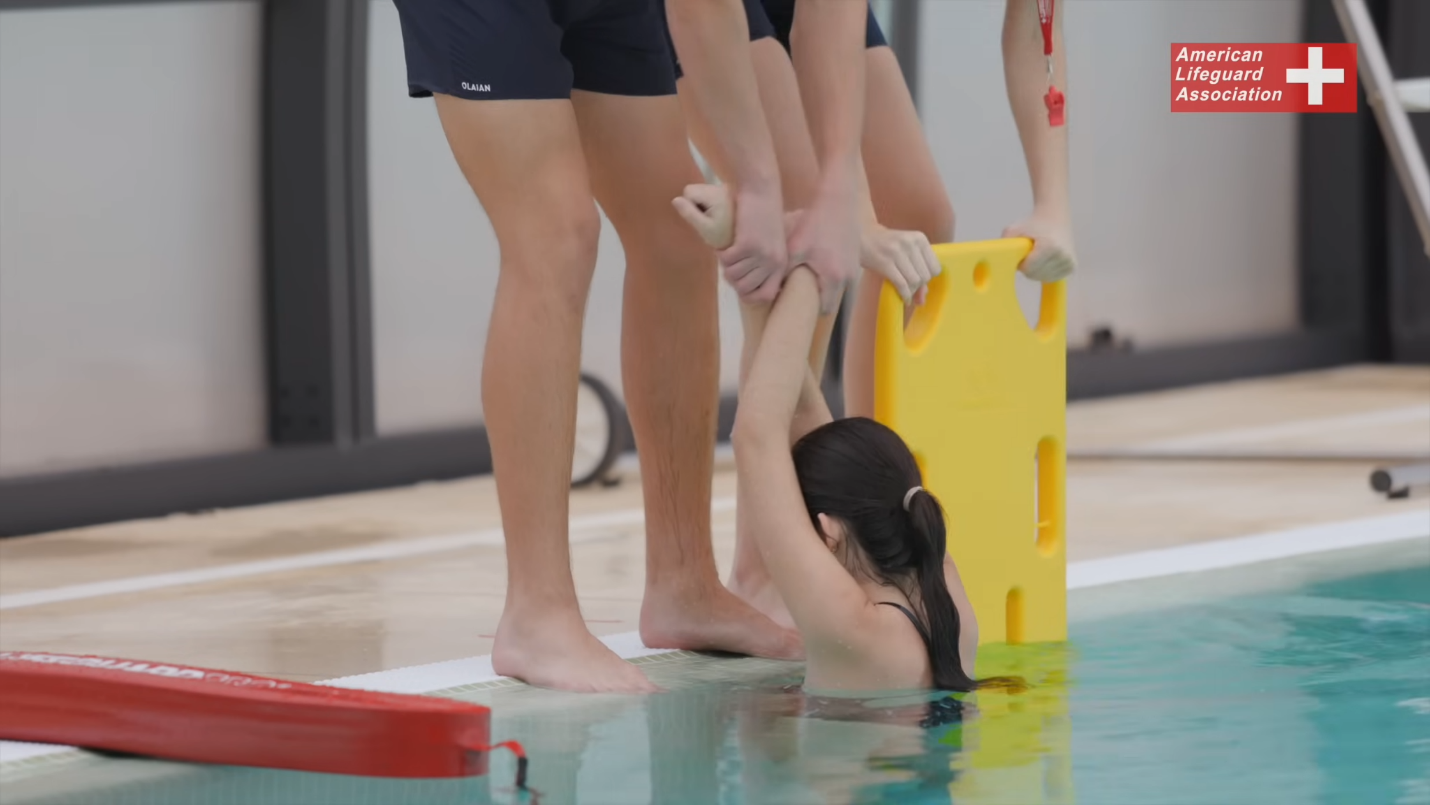Lifeguard training is often connected with preparing individuals for rescue situations, ensuring safety in aquatic environments, and maintaining request at pools, beaches, or other water bodies. However, beyond these essential obligations, the experience of undergoing lifeguard training can act as a powerful catalyst for personal growth.
The challenges and skills gained during this training foster an environment for developing characteristics, for example, leadership, communication, decision-making, and mental resilience.
This article explores how becoming a lifeguard adds to comprehensive personal growth, preparing individuals to save lives as well as to become better versions of themselves.
Building Confidence through Lifeguard Training
Confidence is one of the first traits nurtured during lifeguard training. The learning environment itself is designed to be challenging, yet rewarding, with instructors pushing trainees to master life-saving techniques under pressure. Whether it is learning how to control first aid, perform CPR, or execute a water rescue, the high-stakes nature of the training pushes individuals to step outside their usual ranges of familiarity and confidence in their capacities.
Successfully finishing different responsibilities — frequently after rigorous practice — builds a sense of achievement. The dreary exercises impart confidence that participants can handle extraordinary situations, in aquatic emergencies as well as in life all in all. This confidence extends a long ways beyond the training environment, positively impacting other parts of an individual’s life, from personal relationships to professional undertakings.
Strengthening Leadership Skills
Lifeguard training is unique in that it encourages leadership from the absolute first day. Aspiring lifeguards are encouraged to assume responsibility in different situations, including practice drills and fake rescues.
These exercises expect individuals to go with quick choices, lead others, and really manage turbulent situations. In reality, lifeguards should maintain authority over enormous groups of swimmers, ensuring that everybody adheres to safety guidelines and acts appropriately.
Through this obligation, lifeguards learn the importance of emphaticness, quick thinking, and the ability to show others how it’s done. These experiences train them to step up to the plate and guide others during moments of crisis. The skills developed in these training scenarios can make an interpretation of consistently into leadership roles in other everyday issues, whether in a professional setting or within community organizations.
Enhancing Communication Skills
Compelling communication is critical for any lifeguard, as need might arise to pass clear directions on to swimmers, partners, and supervisors, frequently in high-pressure environments. Lifeguard training emphasizes the importance of succinct, direct, and calm communication. Whether flagging swimmers to clear the water or giving guidelines during an emergency situation, lifeguards should communicate quickly and effectively to ensure safety.
Through lifeguard training, individuals also become adroit at perusing body language, as many rescue situations require non-verbal communication. Moreover, teamwork is a key component of lifeguard training. Lifeguards frequently work in teams, and clear communication between team members is essential to ensure consistent coordination during rescues and other emergency responses.
These communication skills, sharpened in the training environment, are transferable to virtually all other settings. Lifeguards wind up better equipped to articulate their thoughts, manage group dynamics, and engage in more compelling personal and professional discussions.
Cultivating Decision-Making and Critical Thinking
Lifeguards are supposed to pursue split-second choices when confronted with emergencies. Lifeguard training recreates high-stress situations where critical thinking and quick decision-making are principal. Whether it’s choosing whether to hop into the water to rescue somebody or deciding the most effective way to help a harmed swimmer, lifeguards should assess the situation, assess potential risks, and act swiftly.
These situations train individuals to focus on safety and go with choices based on available data. As they become more acquainted with thinking quickly under pressure, their ability to take care of problems and pursue educated choices in other regions regarding life improves too.
Whether managing a tight deadline at work or resolving clashes in personal relationships, the decision-making skills developed during the training act as an important asset.
Building Mental and Physical Resilience
Becoming a lifeguarddemands a high degree of both physical and mental resilience. Training frequently includes physically serious activities like swimming long distances, performing rescues, and rehearsing first aid under recreated stressful conditions. These activities build endurance, stamina, and strength, which means a more strong body.
However, mental durability is comparably crucial. Lifeguards are required to remain calm and focused even in the most turbulent situations. Training assists individuals with developing mental resilience by pushing them to really handle stress. The ability to manage uneasiness, stay formed during emergencies, and think clearly under pressure encourages mental fortitude that benefits all parts of life.
The mental resilience gained from the training can also work on one’s ability to manage adversity in personal and professional life. Whether exploring challenges in school, work, or relationships, individuals who have completed American lifeguard training have the mindset to stay grounded and tackle problems head-on.
Fostering Teamwork and Collaboration
In the lifeguard classes all along, trainees are encouraged to work in teams to take care of problems, execute rescues, and maintain the safety of the environment. Lifeguards frequently depend on each other to perform facilitated rescues and ensure the well-being of others. The ability to work well within a team is crucial for outcome in lifeguard program and, likewise, in genuine rescue scenarios.
These teamwork skills extend into everyday life. Lifeguard trainees learn to team up actually, handle group dynamics, and support partners when vital. The experience of working with a team of different individuals — each with unique strengths and shortcomings — assists participants with developing interpersonal skills and empathy, which enhance their ability to team up in any team setting, whether in work or groups of friends.
Gaining a Feeling of culpability and Purpose
Lifeguard training imparts a deep feeling of culpability in participants. Lifeguards are entrusted with the safety of others, and the weight of this obligation isn’t messed with. The training process supports the importance of vigilance, accountability, and the impact one can have on the well-being of others.
This obligation encourages a sense of purpose that can reach out to other everyday issues. By learning the value of paying special attention to others and assuming responsibility in critical situations, individuals who undergo lifeguard training develop a greater sense of duty and purpose in their daily actions.
Whether it’s assuming liability in a family setting, within a professional environment, or in the community, lifeguards are well-equipped to assume on roles of liability and make meaningful commitments.
Final Word: Lifeguard Training and Personal Growth
Lifeguard training offers substantially more than the technical skills required to save lives. It fills in as a comprehensive journey of personal growth, shaping individuals into stronger, more confident, and capable versions of themselves. From building leadership and communication skills to cultivating resilience and decision-making capacities, the lessons learned during thetraining have expansive ramifications that reach out into each part of life.
Via training with an organization like the American Lifeguard Association, individuals can set out on a personal development journey that equips them with the vital tools to flourish in rescue situations as well as in the daily challenges they face. Lifeguard training is an investment in one’s future, offering a unique path toward personal and professional growth that endures forever.







